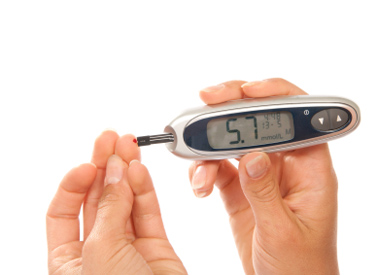Endocrine disorders are often quite complex, involving a mixed picture of hyposecretion and hypersecretion because of the feedback mechanisms involved in the endocrine system. For example, most forms of hyperthyroidism are associated with an excess of thyroid hormone and a low level of thyroid stimulating hormone.
Diabetes mellitus type 1 is also known as type 1 diabetes,
or T1DM; formerly insulin dependent diabetes or juvenile diabetes is a form of diabetes mellitus that results from autoimmune destruction of insulin producing beta cells of the pancreas. The subsequent lack of insulin leads to increased blood and urine glucose. The classical symptoms are frequent urination, increased thirst, and weight loss
Type 1 treatment must be continued indefinitely in all cases. Treatment
should not significantly impair normal activities but can be done adequately if
sufficient patient training, awareness, appropriate care, discipline in testing
and dosing of insulin is taken. However, treatment remains quite burdensome for
many people. Complications may be associated with both low
blood sugar and high blood sugar, both largely due to the
nonphysiological manner in which insulin is replaced
Diabetes mellitus type 1 is also known as type 1 diabetes,
or T1DM; formerly insulin dependent diabetes or juvenile diabetes is a form of diabetes mellitus that results from autoimmune destruction of insulin producing beta cells of the pancreas. The subsequent lack of insulin leads to increased blood and urine glucose. The classical symptoms are frequent urination, increased thirst, and weight loss
Type 1 treatment must be continued indefinitely in all cases. Treatment
should not significantly impair normal activities but can be done adequately if
sufficient patient training, awareness, appropriate care, discipline in testing
and dosing of insulin is taken. However, treatment remains quite burdensome for
many people. Complications may be associated with both low
blood sugar and high blood sugar, both largely due to the
nonphysiological manner in which insulin is replaced

 RSS Feed
RSS Feed